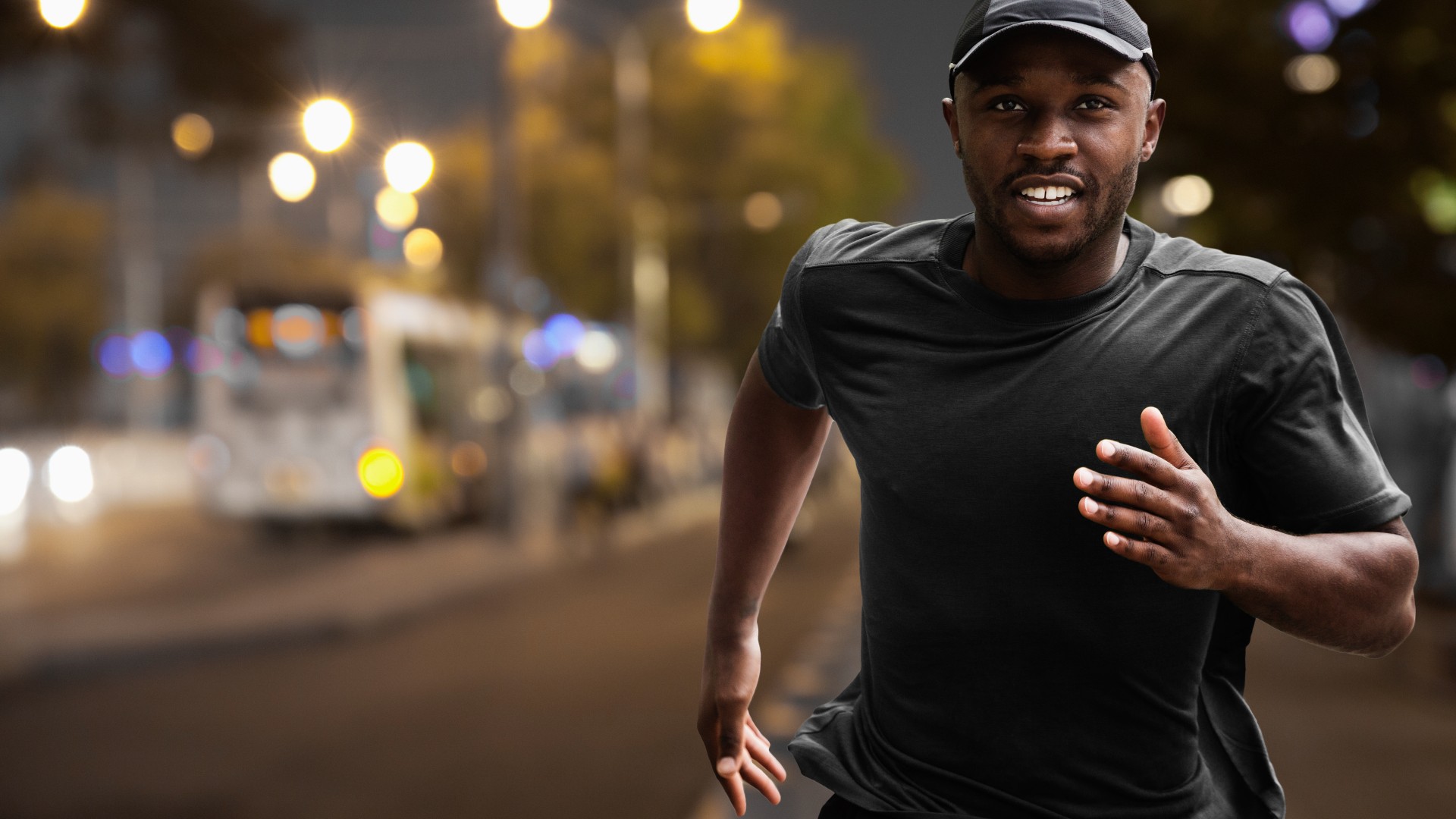Running at night: How does it affect the body?
Discover whether running at night could influence your body’s performance

If you’re a fan of running at night, you may have found yourself wondering how it might affect the body. After all, our bodies are delicate instruments, designed to perform functions with greater effectiveness at different points throughout the day.
Modern life means we often have no choice but to get our miles in during the twilight hours, whether that be pounding the pavements or using one of the best treadmills on the market. The good news is that, in general, running at night won’t negatively impact your performance although as always, effects can differ depending on the individual.
How will running at night affect sleep?
One of the main issues regarding running at night is the negative impact it is perceived to have upon sleep patterns. However, according to sports therapist Gina Reinge, who has spent years working with professional athletes, “the jury is rather out on this one.”
Reinge states that, “it seems to depend on the time of your exercise.” Pointing towards research published in Sports Medicine,” she adds: “Some studies have shown that exercising two to three hours before bedtime will not affect your sleep and may even improve sleep patterns.”

Gina Reinge is an experienced sports therapist who has spent years working with professional athletes, including having spent four years working at the High Performance centre in Bath, U.K., with international elite-level Judo players. Along with her husband, she runs a multidisciplinary clinic.
Reinge adds that while several studies have pointed to the benefits of morning exercise such as one in the Journal of Adolescent Health, the effects of night running are dependent on how close your run is to the time you turn in for the night.
“It is generally thought that vigorous exercise less than an hour before bedtime may not be the best idea,” she explains. “It can negatively affect your sleep patterns by taking longer to get to sleep, and waking more times during the night, though this seems to depend on your age and how fit you are.”
Monitoring your sleep and energy levels is the best way to determine if late night running does or doesn’t work for you, but on the whole, if it happens to be a better fit with your lifestyle and doesn’t keep you awake, there’s nothing to be concerned about where sleep levels are concerned.

Could running at night affect your performance?
What about while you’re actually running though? Running at night usually means you’ve been awake for a full day, expending energy, and yet those who enjoy running at night often feel it can boost energy levels, not to mention being a wonderful way to mentally unpack the stresses of the day.
Whether you subscribe to this idea can depend very much on which part of the day you feel more productive in.
As Reinge puts it: “Early risers seem to peak earlier in the day, performance wise, than night owls [check out a study in Sports Medicine]. Performance in general tends to peak more in the afternoon, however your own individual circadian rhythms will influence this.
“If you are a night owl you are less likely to perform at your peak in a morning competition and if you are a morning riser, you are less likely to perform optimally in the evening."
These claims are backed by a study published in the Journal of Circadian Rhythms.
Are there any benefits to running at night?
There are a few potential benefits to a nighttime run, although research in this area has not been conducted widely enough to draw any conclusive findings.
“There is a suggestion that evening aerobic exercise may help to control blood glucose levels in overweight adults,” explains Reinge, adding that, “one study found a significantly improved level of glycaemic control when comparing morning to evening exercise though this hasn’t been confirmed by other studies.” This was noted in a study published in Diabetologia.
As already mentioned, improved sleep is a potentially positive side-effect of night running whilst it has also been suggested that heart rate recovery can be aided by evening aerobic exercise, but again, little research exists on the subject.

Are there any drawbacks to running at night?
Finally, what about any drawbacks? “Apart from the obvious safety considerations of running alone at night, there don’t seem to be any physiological drawbacks to running at night,” considers Reinge. However, she adds: “if you are an early morning riser this time may not suit your body.”
Ultimately, the unique factors that characterise you, will be the determining factor in whether an evening run is the right time for you to get those precious kilometers in. Why not give it a try and see how it works for you?
Sign up for the Live Science daily newsletter now
Get the world’s most fascinating discoveries delivered straight to your inbox.
Dan Cooper is an experienced fitness writer who firmly believes in the power of running. The hardest race he has completed so far was Tough Guy, the world’s oldest and most demanding OCR event. There he learned that you may be able to outpace opponents, but outrunning hypothermia? That's a different race entirely.











